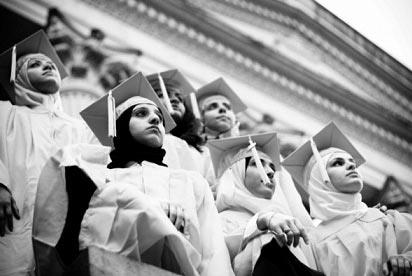Islamic Studies Flourish in Australia

“The younger generation of Muslims seriously want to study but don't want to go overseas for various reasons,” Mehmet Ozalp, who teaches religious and Islamic studies at Charles Sturt University, told Sydney Morning Herald on Wednesday, February 5.
Programs for Islamic studies were first introduced at Charles Sturt University three years ago with a Bachelor of Islamic studies.
Next year, the university will add a Master of Classical Arabic to its curriculum, bringing the number of enrolled students to about 340, most of them from a Muslim background.
The recent turmoil that rocked the Middle East over the past few years has also helped in flourishing the number of Arab and Islamic studies at Australian universities.
“Some of them are ex-soldiers who have been to Afghanistan or somewhere and now want to study Islam properly,” Ozalp said.
“It's productive. They really give a different perspective. Students in the class need to hear [that perspective] and non-Muslims need to hear what Muslims are saying.”
Charles Sturt is not the only university to offer Islamic and Arabic studies around New South Wales.
At the University of Western Sydney enrolments have leaped from 60 in 2008 to about 200 in 2013.
“Students have employed their Islamic Studies skills and knowledge in a number of differing areas over the years, however, they mainly seem to focus on utilizing these in primary school teaching and secondary school teaching,” UWS's senior lecturer in Islamic studies Jan Ali said.
“A student of mine who took one Islamic Studies unit as an elective some while back is working in social welfare and says that Islamic Studies unit has helped him better interact with people from a non-English speaking background.”
The University of Sydney began teaching Arabic and Islamic studies in the 1970s, but didn't set up a dedicated department until 2000.
“The department is flourishing at all levels,” Nijmeh Hajjar, associate professor at the university, said.
“It's not only because of what's happening in the world, it's because . . . we have students who actually want to learn about the Arab world and about Islam and learn the language.”
Brilliant Future
The Islamic courses offered Australian students a chance of a better future.
“I was always interested in the language, culture and the politics so I knew from the start it was something that would be suited to me,” Sonia Diab, who hopes to use her studies to work for the United Nations, told the Herald.
The 21-year-old is studying a combined law and international-studies degree at the University of Sydney, majoring in Arabic and Islamic Studies.
Diab, whose father is Lebanese, says she enjoys the subject so much she is considering a PhD in Arabic Studies when she finishes her course.
For her, the recent revolutions in the Arab world have added to interest in the Islamic studies.
“Revolutions got a lot of people interested, especially when there was so much happening in Tunisia and Egypt – it's only natural stuff that happens around the world would make people think 'I'd like to learn more about that country, or that place, or that language',” she said.
Hajjar, the associate professor at the University of Sydney, has also found a better career by teaching the poplular subject.
“I'm an Arab-Australian, member of the Australian community and I believe in multiculturalism and the Arab communities in this country and their contribution,” she said.
“This is part of my contribution as an Arab-Australian citizen and part of my contribution to this great Australian country. This is what I'm doing, it's what I'll continue doing – teaching Arabic and Islamic studies – it's part of me.”
Ozalp, one of the first in the Muslim community to teach Islamic courses in English, believes the courses will help combat damaging perceptions about the Islamic world.
“This course is very brave work in addressing extremism and radicalism in Australia,” he said.
“The Muslims created a brilliant civilization . . . science, technology, commerce, even legal terms, some of the norms that Europe eventually learned from, used to develop western civilization – a lot of people don't know that.”
Muslims, who have been in Australia for more than 200 years, make up 1.7 percent of its 20-million population.
Islam is the country's second largest religion after Christianity.
Source: On Islam



